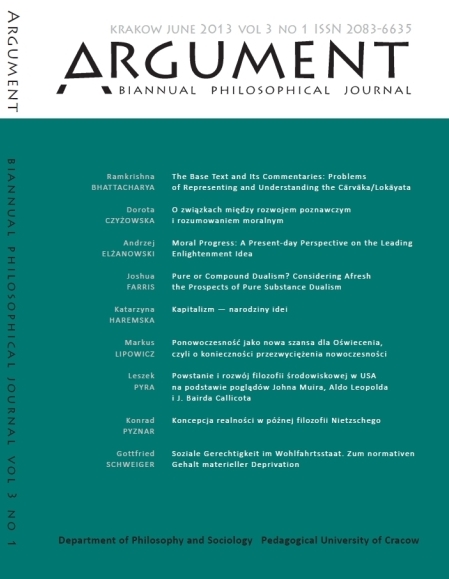The Base Text and Its Commentaries: Problems of Representing and Understanding the Cārvāka/Lokāyata
Słowa kluczowe:
base text, the Cārvāka/Lokāyata, Indian philosophy, commentary, inference, perceptionAbstrakt
The base texts of most of the philosophical systems of ancient India are in the form of a collection of aphorisms (sūtra-s). The aphorisms are so brief and tersely worded that their significance can seldom be understood without the help of a commentary or commentaries. Sometimes, the literal meaning of an aphorism needs to be qualified or modified by an explanation found in the commentary. If a reader relies exclusively on the literal meaning of the aphorisms in the base text without having recourse to any commentary or disregards all commentaries, he or she may miss the point. Contrariwise, if a reader relies exclusively on a commentary and disregards the literal meaning of an aphorism, he or she will commit another kind of blunder. Ideally, equal attention should be paid to the base text as well as the commentary or commentaries. Even then, all problems are not automatically solved, for it is an uphill task to decide when to go by the literal meaning of the aphorisms and when to follow the commentary. In their polemics against the Cārvāka/Lokāyata, Jayantabhaṭṭa (c. ninth century C.E.) and Hemacandra (eleventh century C.E.) erred because they did not follow the golden rule stated above and consequently misunderstood and misrepresented their opponents’ contentions.


